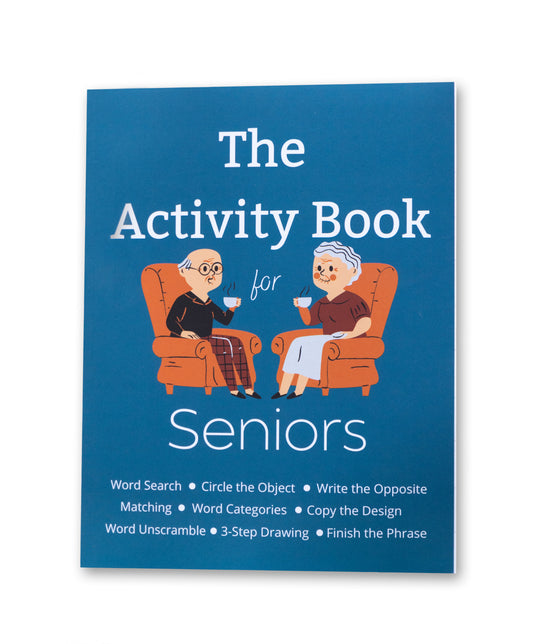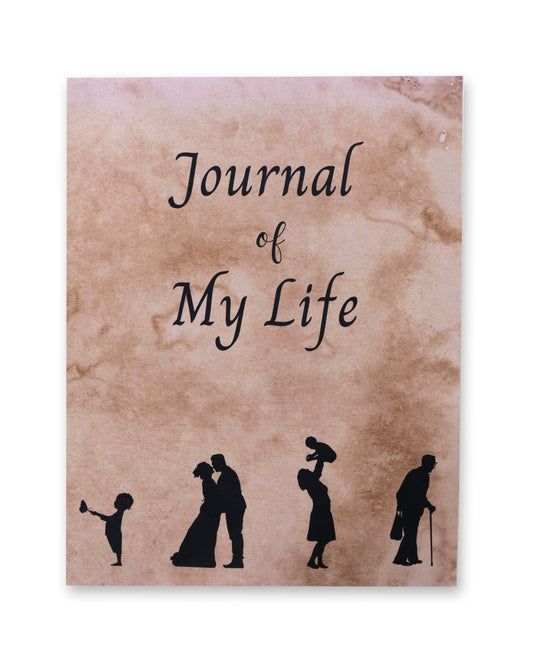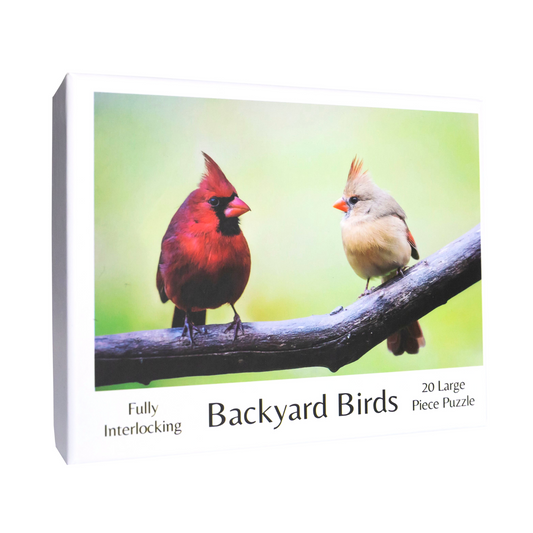
Choosing the Right Puzzle for Dementia or Alzheimer’s
Share
Why should my loved one do a puzzle?
Seniors engaging in puzzles is a great way to keep the brain active. When people age and have memory loss, their daily activities are gradually taken away due to the increasing difficulty, leading to subtle feelings of helplessness. Whether they’re new to puzzles or have been doing them for years, doing a puzzle successfully can help the senior gain confidence. Handing them a 500-piece puzzle is not likely to lead to success, but adapting a puzzle with just a few pieces is expected to!
5 Benefits of Seniors Doing Puzzles
- Doing a puzzle promotes brain function through the problem-solving that occurs by deciding which piece goes where.
- It strengthens visual perceptual skills as the senior needs to notice the shapes and colors.
- Their attention span is given a good challenge as they stick with the puzzle until it’s completed.
- Success at activities helps boost confidence which combats depression.
- Finally, manipulating the puzzle pieces with the fingers promotes fine motor control and also brain function due to the many sensory receptors in the fingertips.

How to Pick a Puzzle for Someone with Dementia
There are many benefits to doing a puzzle, but what makes all the difference is whether the senior is successful at doing it. Let’s take a look at how to help them be successful at doing a puzzle. Start by trying out a puzzle with just a limited number of large, easy-to-grasp pieces, such as a 12-piece puzzle. Choose a puzzle with high-contrast colors and a simple picture. You’ll have more luck finding a puzzle like this for sale online than at the local store. If your loved one is new to puzzles and has memory loss, be sure to start them out by doing the puzzle with them to be able to determine how best to set them up for success.
How to make a Puzzle Easier for Someone with Dementia
Have your loved one sit comfortably at a table where they can easily reach the pieces. Be sure the puzzle box picture is in their line of sight. Start by putting the puzzle together for them, leaving out a couple of corner pieces, and placing those pieces near to where they go. Avoid drawing attention to the fact that you put most of the puzzle together for them. Give simple directions and point out where the piece goes. If they are successful at this level, move on to the next challenge. Complete half of the puzzle and have them do half the puzzle with the pieces roughly placed. Provide subtle and simple directions when needed such as, “put the piece here.” Depending on their success, you could then progress them to doing the puzzle on their own. When they’re successful, no matter how much you adapted it, be sure to give them some praise for their success. Don’t point out their mistakes. Instead, set them up for success.

Start with an Easy Puzzle
The more times they do the puzzle, the easier it will get for them. They are likely to enjoy doing it repeatedly and will gain confidence with their success. Since their participation and success at the puzzle is what is important, make sure you start easy to help gain confidence. If they try it and fail because it is too hard, they are likely to shut down to engaging in puzzles, because no one wants to fail at what they do. It is common for them to withdraw and say, “I don’t like puzzles” when the challenge was too hard for them.
A final reminder, doing puzzles, games, and having conversations helps promote brain function to slow cognitive decline, combat depression, and promote well-being. By taking the time and effort to help your loved one, you are doing a beautiful thing!
Best Dementia Puzzles for Seniors
Butterfly Morning and Handyman’s Tools by GrandMinds are both 12-piece puzzles with large easy-grip pieces and vibrant colors. Both offer high-contrast colors improving the ease of discerning piece placement. Both come with an instructional sheet providing tips to set your loved one up for success. If you’re not sure where to start with puzzles, and your loved one has some memory loss, vision impairment, or has difficulty manipulating objects with their hands, these puzzles lend themselves well to failure-free engagement.


The next challenge up is Beach Treasure or Backyard Birds by GrandMinds. These 20-piece puzzles also feature easy grip pieces using high contrast colors with simple, yet lovely pictures. A good combination is starting your loved one with a 12-piece puzzle and once they’ve had success with the puzzle with fewer pieces, they’re likely to feel confident enough to take on the bigger challenge. A gentle reminder to provide the subtle cues and assistance they need to foster puzzle success.
 .
. 






